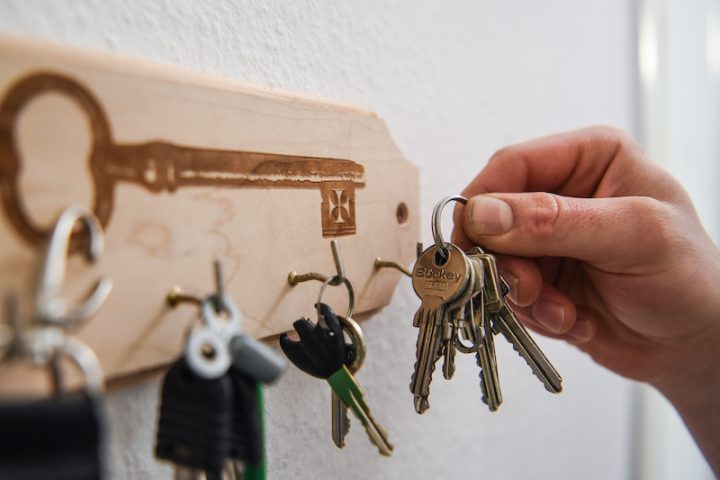When I was younger, I dreamed of being a Jane Austen heroine. Nearly two decades on, in my late twenties, I am living in the guest room of a married older cousin in a leafy suburb of London, house-hunting in the middle of a housing crisis, waiting on a security clearance for a public-sector job, and wending my way through a dizzying array of balls, dinners, and public talks while I wait, observing a long-decaying society in the fullest bloom of its collapse.
The 1990s dream of single professional womanhood, complete with uptown apartment, financial independence, and unlimited opportunity has been unmasked as an illusion, while the underlying realities of the world remain as they always were. Doing things alone is difficult. A husband – or a family which is either proximate or financially supportive – seem to make the practicalities of life much easier. Strip away the entire twentieth century and what, essentially, is different? Dreams have a funny way of coming true in the most unexpected ways, don’t they?
We buy flat-pack furniture to discard or recycle. We pass nothing down and leave little behind
Life has become a series of dashes between house viewings – brief hellos and goodbyes to almost-flatmates. The inhumanity of being infinitely upgradeable in a market of displaced individuals; the utter strangeness of appropriating the intimacy of domesticity with people we do not know. These people are testing us, interviewing us, and judging us by our ability to withstand the volatility of the markets more stringently than any employer would.
Many of us would take years to move in with boyfriends or husbands, but we walk into the living rooms of strangers with no hesitation at all, competing for the chance to be the right ‘fit’ for them in a series of ten-minute conversations. When we fought for women’s liberation and freedom from the domestic and familial role, is this what we meant?
In the past, women would advertise their suitability as a domestic companion and partner to men for the purpose of marriage. Now, we engage in a strange dual courtship. We show housemates how clean, quiet, and collaborative we are, while presenting a persona of independence, adventurousness, and mystique to romantic partners. There is no clarity about what ‘home’ should be in our twenties.
True, severing home life and courtship may have saved many from unhappy marriages, but it has also postponed the assumption of responsibility for running a household. Many are now forced to live with family until either professional success or marriage provides an opportunity to leave. Young people play the domestic role of children, all while being expected to assume significant responsibility in the professional world. We inhabit a strange new homeless domesticity, play-acting hospitality and conviviality without permanence, like children sitting down to a tea party with dolls.
We systematically undermined ideals of family, marriage, and commitment in both East and West. We dissociated home and domestic life from romantic exploration with the 1960s myth of free love, and created a state which stepped in as guardian and protector while we explored. The result is twice as many single professionals in big cities without enough houses to contain them, and an overburdened social security net unable to support the new, and now over-educated, ‘working poor’.
This has led to people switching flatmates and partners like pairs of gloves, each person becoming more replaceable than the last, as we learn that every place is temporary. We meet people, we see them in their dressing-gowns, taking their morning coffee and toast, and then we disappear from their lives forever – and we convince ourselves that this is the normal state of affairs.
The pervasiveness of such non-intimate intimacy inoculates us against loss and change, makes minimalists of us all, travelling light through existence, never sure where we will land, not willing to invest too much in fixtures, fittings, or people. We buy flat-pack furniture to discard or recycle. We pass nothing down and leave little behind.
The previous century was one of individualism, but that philosophy has reached its limit. One can only be individualistic where complete independence is an option – but it was always something of an illusion.
The individualist is the person who can buy a house in London without a mortgage or a partner. But proof of purchase will not make it a home. Family, children, the evolutionary instinct to reproduce – these are all incompatible with individualistic self-sufficiency. We have created a society whose primary value clashes with our most fundamental human need and then question why it is failing us.
My lesson from being a couch-surfer is this: keep your friends close. Test them with circumstances (many will disappear when life becomes chaotic), cultivate those who remain as a home more precious than bricks and mortar. We must build whatever community and permanence we can amidst the chaos. We must enjoy life’s fleeting moments, but also lay the groundwork for a better society than ours, which we may never enjoy.
This is a hard reality for young people to face, but we must take on the responsibility or resign ourselves to becoming a lost generation. It is easy to live reactively. In a time of pandemics, wars, and economic crises, it is easy to say ‘nothing has permanence, so I will not build anything’. But how much harder (yet more gratifying) to watch the half-finished edifice be washed away time after time as years of youth pass by – and to get up the next morning and rebuild again regardless.






Comments